Articles and Publications
In this section you can find all the publications of EUROPEUM staff and collaborators. Press releases can be found in the About us section.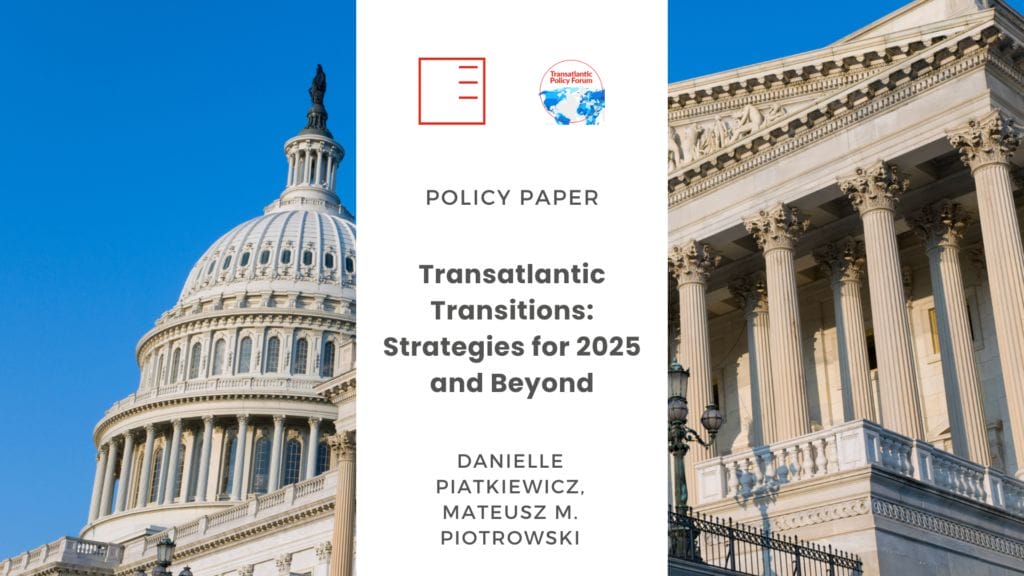
Policy Paper | Transatlantic transitions: Strategies for 2025 and Beyond
The "Transatlantic Policy Forum 2024 Backgrounder" paper outlines key strategic challenges and policy directions for the transatlantic relationship as the U.S. approaches its 2024 presidential election. It addresses anticipated issues in transatlantic cooperation, including NATO and EU enlargement, response to the war in Ukraine, security in Central and Eastern Europe, and rising geopolitical tensions with China. The paper emphasizes the need for the U.S. and Europe to strengthen alliances to face challenges like election integrity threats, a multipolar trade system, and authoritarian influences.

Policy Paper | Circularity and life cycle of batteries and construction materials in the automotive industry as an opportunity for the Czech Republic
Based on research reports in the field of batteries and construction materials, this policy paper summarises strategic steps and recommendations to support the development of the Czech battery industry and to strengthen the use of low-emission materials and circular strategies in the automotive industry. The policy paper by EUROPEUM Institute for European Policy in cooperation with the Institute for Circular Economy (INCIEN) and accompanying studies are a major contribution to the debate on the transformation of the automotive industry, which today faces challenges related to decarbonisation and increasing competition, especially from China.

Report | Battery circularity in the automotive industry as an opportunity for the Czech Republic
The report "Battery Circularity in the Automotive Industry as an Opportunity for the Czech Republic" addresses key issues in the development of the battery industry in the Czech Republic, with an emphasis on the circular economy, recycling and reuse of batteries. The study, which was produced in cooperation between EUROPEUM think tank and experts in the field of batteries and electromobility, shows that although the Czech market is still lagging behind in the development of battery production and recycling, its potential is huge - from raw material extraction to component production to battery recycling, which would significantly strengthen the resilience and environmental sustainability of the Czech economy.
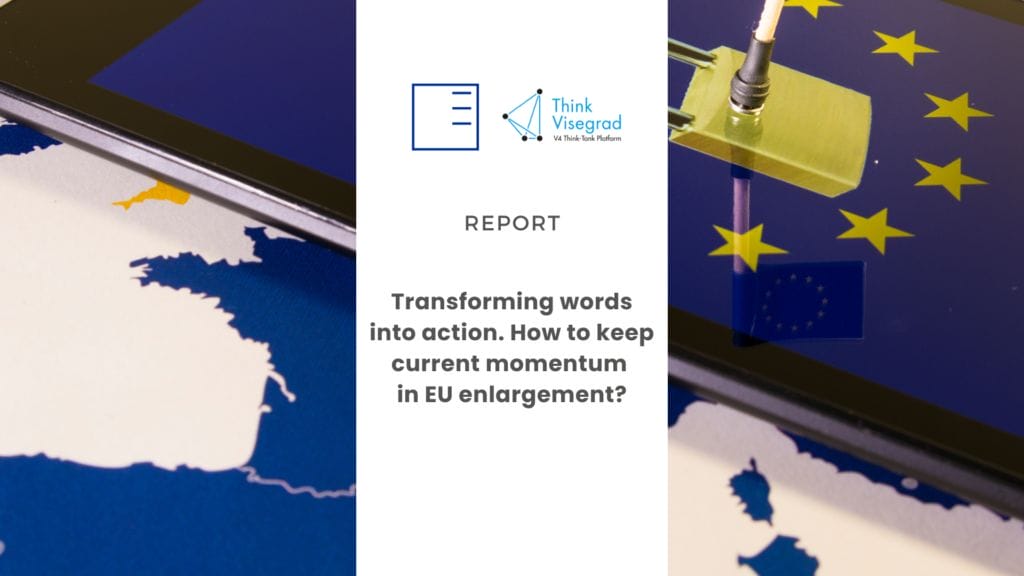
Report | Transforming words into action. How to keep current momentum in EU enlargement?
On the 3rd of October, Think Visegrad in Brussels, represented by the Brussels Office of EUROPEUM Institute for European Policy, organized a discussion titled "Transforming words into action. How to keep current momentum in EU enlargement?". Experts from think tanks, diplomatic missions and EU institutions dwelled into the renewed focus on EU enlargement, including the initiation of accession negotiations with Ukraine and Moldova, the formulation of new strategies and financial incentives for candidate states, and reinforced commitments from the EU. The key challenge moving forward is ensuring that this momentum is sustained and translated into concrete, transformative actions that deliver measurable results.
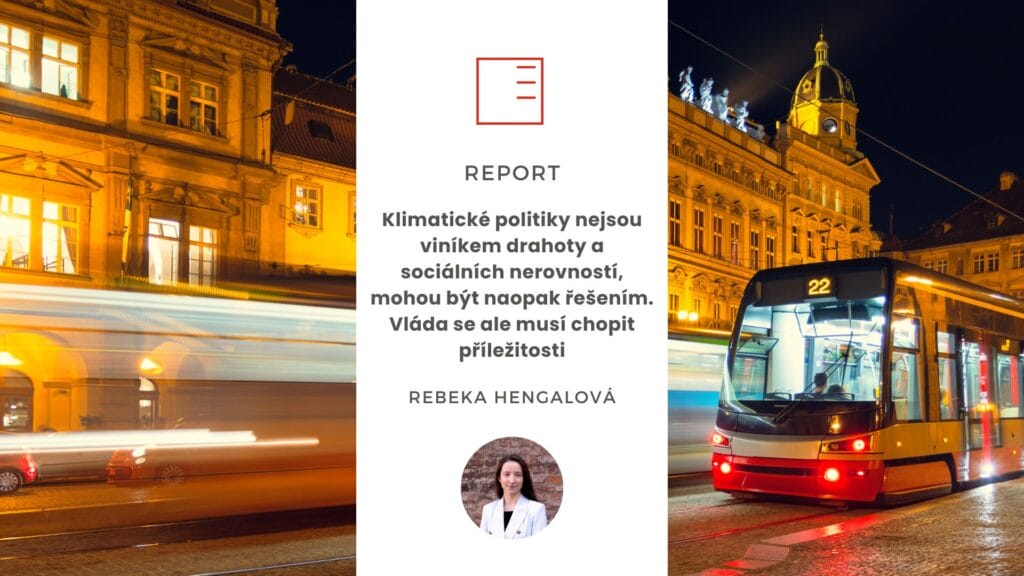
Report | Climate policies are not the culprit of high costs and social inequalities, but can be the solution. But the government must seize the opportunity
This week, the Government will discuss in the third reading an amendment to the Emissions Trading Act, which also includes so-called household allowances. Under ETS2, these will charge for emissions from road transport and local heating - so they can help invest in infrastructure, renewable energy and support socially vulnerable groups. EUROPEUM Institute research fellow Rebeka Hengalová and others write.
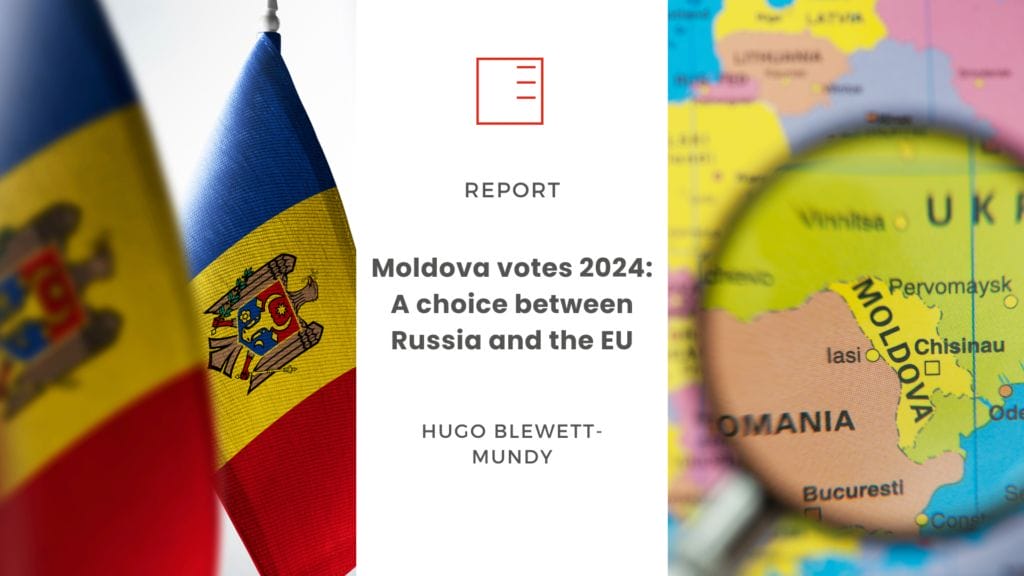
Report | Moldova votes 2024: A choice between Russia and the EU
Moldova stands at a critical juncture that will determine its position within Europe. In the elections on Sunday, the incumbent president Maia Sandu is seeking a second term and a positive result in the EU accession referendum to reaffirm her country’s path towards Europe. But the hybrid threat facing Moldova from Russia will not dissipate, particularly as next year’s pivotal parliamentary elections approach in the tiny former Soviet republic. Hugo Blewett-Mundy, a non-resident associate research fellow from EUROPEUM, analyses the current situation in Moldova and provides an outlook for the country in 2025.
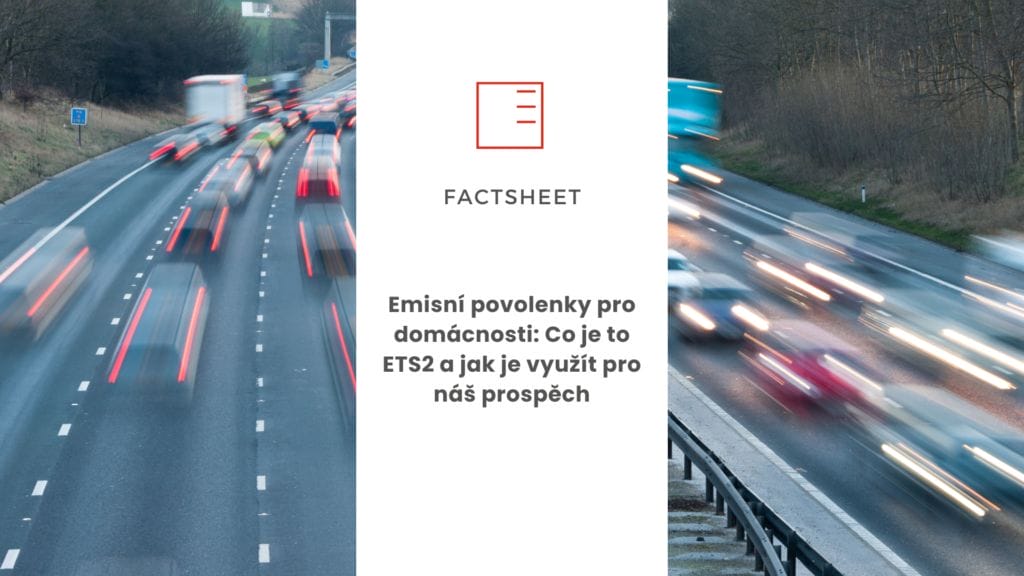
Factsheet | Emission allowances for households: What is ETS2 and how to use it to our advantage
The extension of the emissions trading system for local heating and road transport, the so-called ETS2, is due to come into effect in 2027. ETS2 now needs to be adopted into Czech legislation under the Emissions Trading Act. In this factsheet you will find basic facts and answers to questions that the Czech public often asks. Please also see the attached materials from the organisations that contributed to the factsheet.
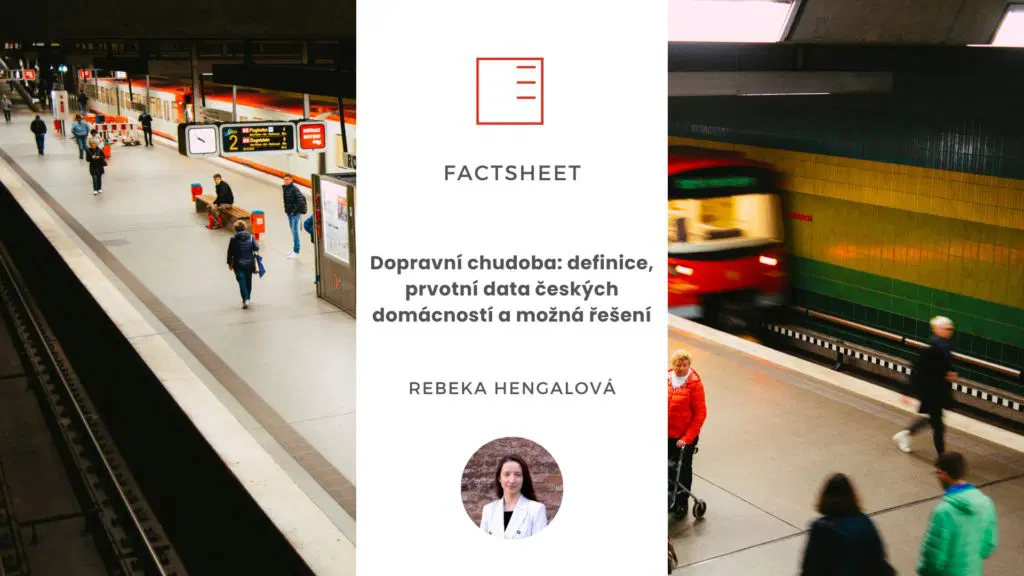
Factsheet | Transport poverty: definition, primary data of Czech households and possible solutions
Already 3% of households in the Czech Republic are at risk of transport poverty, and this situation could worsen in a few years' time. Indeed, with the introduction of the ETS2, the emissions trading scheme for households, which extends emissions trading to road transport and local heating of buildings, fuel prices are expected to rise from 2027. This will have an impact on household budgets. Read the factsheet put together by Research Fellow at EUROPEUM Institute Rebeka Hengalová to find out exactly what transport poverty is and how it can be prevented and eradicated.
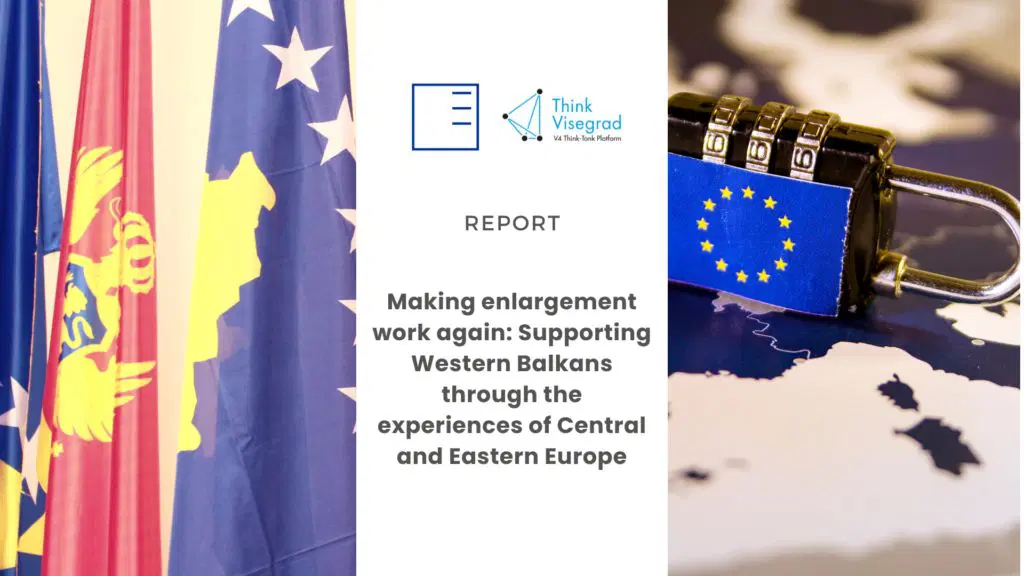
Report | Making enlargement work again: Supporting Western Balkans through the experiences of Central and Eastern Europe
On September 12th, EUROPEUM’s Brussels Office organized a public conference titled “Making enlargement work again: Supporting Western Balkans through the experiences of Central and Eastern Europe”. Following a keynote speech by H.E. Bálint Ódor, the panel discussions dwelled on the 2004 enlargement, its impacts on the EU and the lessons learned from the process through the perspective of current EU accession of the countries of Western Balkans.
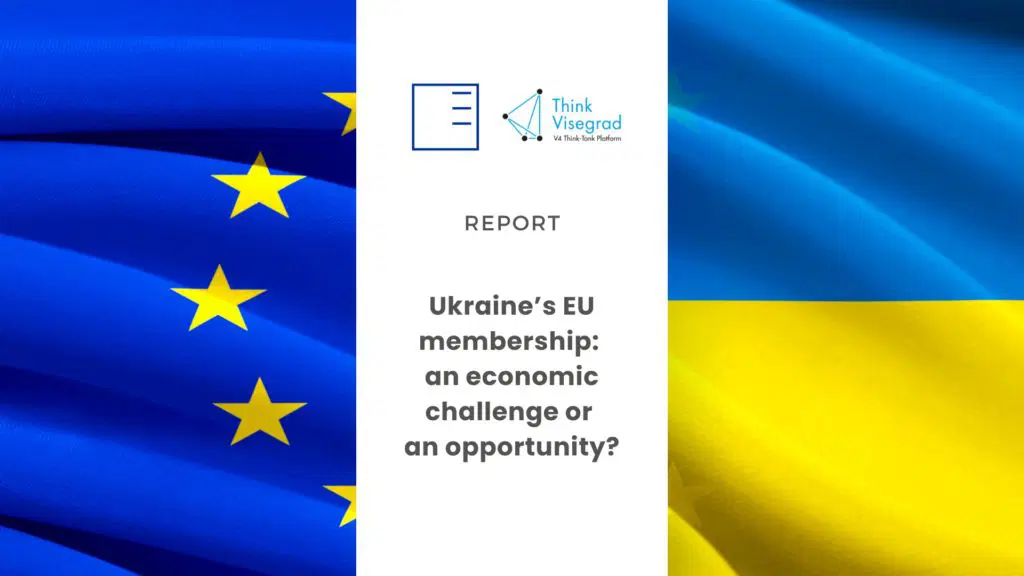
Report | Ukraine’s EU membership: an economic challenge or an opportunity?
On September 26th, EUROPEUM’s Brussels Office organized an expert discussion titled “Ukraine’s EU membership: an economic challenge or an opportunity?” The debate focused on the potential economic impacts of Ukraine’s accession to the Union, including the EU budget, sectoral policies, energy or critical raw materials. It also evaluated the opportunities for Central European countries and their private sector to strengthen the ties between the two regions. Read the full report below.

Policy Paper | Navigating the Digital Workforce Frontier
Since the pandemic, telework has been on the rise and is here to stay. In 2023, nearly 1 in 4 employees in the EU worked from home at least part of the time, and almost 75% want to continue teleworking at least several times a month. While teleworking within member states has become relatively easy, cross-border remote work remains fraught with administrative hurdles, costs, and uncertainties —especially for SMEs. In her latest Policy Paper, EUROPEUM Institute Research Fellow Silke Maes explores why remote work is still difficult, why regulating telework isn’t yet a priority, and how tax, social security, and labour law could be adjusted to the era of digital work.
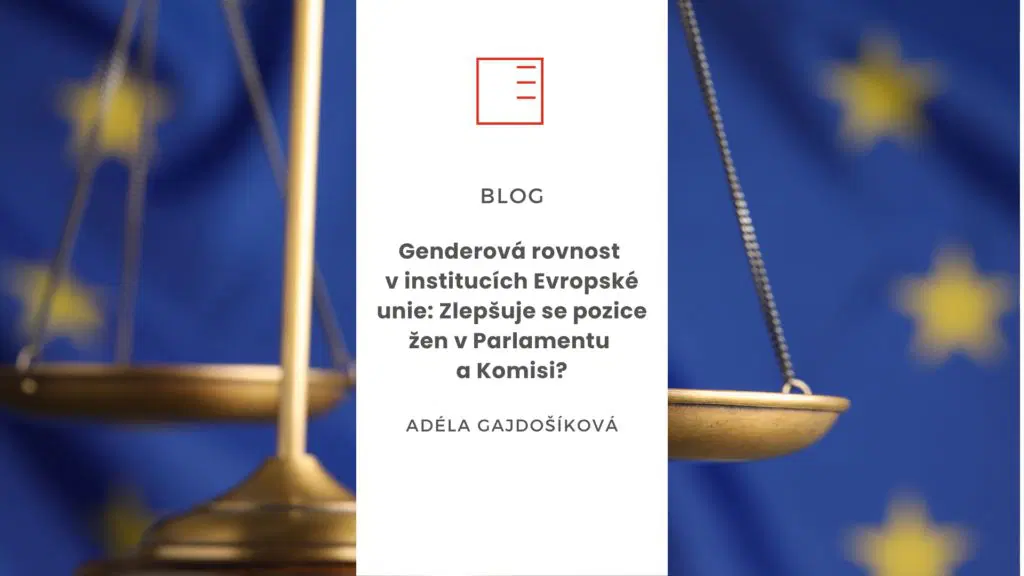
BLOG | Gender equality in the EU institutions: is the position of women in the Parliament and the Commission improving?
Despite the fact that women make up half of the population, they are still not equally represented in the key institutions of the European Union, even in leadership positions. The European Parliament and the European Commission are taking a number of steps to improve gender equality, both internally and towards the public. Adéla Gajdošíková writes in her blog what the current representation in these institutions looks like and what concrete measures they are taking.